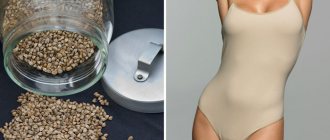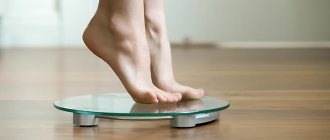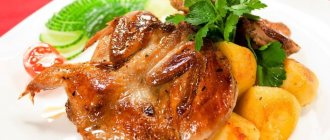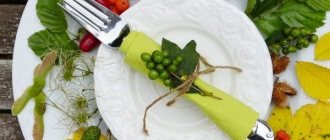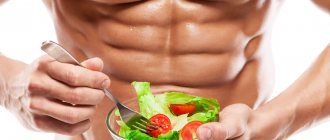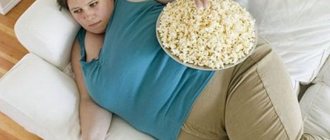© dedivan1923 — depositphotos.com
Share:
A drinking diet is an effective way to quickly lose extra pounds. This type of nutrition is used not only for weight loss, but also for the purpose of detoxifying (cleansing) the body. Thanks to the consumption of liquid food, the load on the gastrointestinal tract is reduced, and the body starts recovery processes.
Features of the drinking diet
Let's look at what the essence of the drinking diet is, what its benefits are and whether there are risks.
Essence and benefits
The essence of the drinking diet is to consume only liquids: any solid food is prohibited. The benefit of a drinking diet is a deep cleansing of the entire body: excess load is removed from the digestive tract, the functioning of internal organs is stabilized, and excess weight is lost.
The greatest loss of extra pounds comes from water. The human body is designed in such a way that when drinking a large amount of water, it begins to more intensively remove excess fluid from the body. Under conditions of increased fluid consumption, excess water leaves tissues and cells, and body contours become clearer and more prominent.
© tandaV — depositphotos.com. The benefits of water for the body
Side effects
The 7-day drinking diet, like the buckwheat diet, is quite strict and fraught with various risks, especially for those who are practicing such nutrition for the first time. People report a strong feeling of hunger, dizziness, headaches and abdominal pain in the first days. However, by the end of the diet, the symptoms of malaise subside, and they are replaced by comfort throughout the body and lightness.
However, in some cases, the drinking diet leads to a number of serious side effects:
- gastritis and other digestive disorders;
- deterioration of the condition of the skin, hair and teeth;
- significant decrease in immunity;
- anemia (anemia) and various hematopoietic disorders.
The likelihood of such consequences increases if you practice the diet for more than 7-14 days.
Be careful: the duration of the drinking diet should not exceed one week! There is a risk of not only burning too much muscle mass, but also harming your health.
A critically low calorie diet is fraught with exhaustion of the body and a complete loss of hunger. In some people, eating behavior during a long-term drinking diet changes so much that it develops into anorexia.
Contraindications
Specific contraindications:
- disturbances in the gastrointestinal tract;
- stomach ulcer;
- gastritis;
- disorders of the kidneys and liver;
- cardiovascular diseases;
- period of pregnancy and lactation;
- age under 18 years;
- increased physical activity.
The diet is not recommended for professional athletes and people engaged in heavy physical work.
© KrisCole — depositphotos.com
Expert advice
Nutritionist Boris Skachko urges women to weigh the pros and cons of drinking therapy and only then begin long-term weight loss. Losing health quickly, but regaining it is very difficult, which is why it is important to carefully approach the methods of self-healing of your body, especially drastic weight loss.
It is important to first of all understand why you have extra pounds; perhaps it is internal diseases that are progressing, and you will bathe in soda and worsen your condition.
Or maybe you are a lover of sweet calories at night, and that is why you are overweight. To prevent this, you need to give up confectionery, switch to a healthy diet and resort to intense exercise.
Be careful and do not experiment with your health! Exit any diet correctly and do not neglect the recommendations of specialists. Only you are responsible for your well-being and life!
These are the rules for quitting a drinking diet that must be followed in order to stabilize the results and not gain extra pounds. You need to lose weight wisely and without harm to your health!
Mechanism of weight loss
A drinking diet gives the body a break from eating solid food and the constant process of digestion. When eating liquid food, the load on the digestive tract is noticeably reduced, which is even beneficial for a short period. The mechanism of weight loss during a drinking diet completely repeats the effect of a regular low-calorie diet.
Fat burning occurs due to a sharp reduction in calories, since the daily ration of such a diet rarely exceeds 400-500 calories - this is the critical calorie content for the normal functioning of the adult body. A sharp decrease in calories in the diet provokes the body to use liver glycogen, and then its own muscle tissue as a source of nutrients. The body consumes adipose tissue last and very reluctantly, trying to preserve its “strategic reserve”.
For this reason, as a result of a drinking diet, volumes and kilograms are lost only due to excess water and muscle mass, but not due to fat reserves. Fat cells (adipocytes) are temporarily “deflated” due to a decrease in the amount of fluid in them. Visually, a person looks much slimmer, but in reality the fat does not go anywhere.
Contraindications
How to get pregnant: the most effective ways + what to do if it doesn’t work out
Short-term diets require the introduction of taboos that are significantly different from the previous use of water. They are intended only to achieve one goal: weight loss and ballast fat. And where there are serious restrictions, there are always contraindications.
- Pregnancy and breastfeeding. Pregnancy and breastfeeding are always at the top of the list of contraindications for most diets. This is the time when a woman’s body works for two and for two. At least some of the dietary restrictions can cause health problems not only for the expectant mother, but also for the baby.
- Kidney diseases. People with kidney disease are strictly prohibited from fasting. Even a little, like a few days. If a sick woman does not consume 3500 kcal during the day, her body will begin to consume protein, which is a “rainy day” reserve. Protein processing will be associated with the release of toxins into the bloodstream. This means that it will lead to an imbalance in the already weak kidneys.
- Urinary tract diseases. The more you drink, the more often you run to the toilet. This means you are putting stress on your urinary system. In the case of such conditions affecting the urinary tract, additional stress is placed on the organs involved in this process, so drinking large amounts of water is prohibited.
People may say that old age is the almost drying up of the human body. In this case, both externally and internally. The centers responsible for the feeling of thirst manifest themselves worse with age. Consequently, less and less water enters the body every year.
But even if you are young, it is important to realize whether you need a water diet. Simply create a fold on any part of the skin and analyze the smoothing process
If the skin wrinkles easily, feels soft to the touch, and when you open your fingers it moves rather slowly and slowly, go get some water immediately! And if the fold is fair and straight, it means that you are still an Aquarius, for which congratulations.
Authorized Products
The drinking diet, as its name suggests, involves eating only liquid foods—those that do not need to be chewed.
On a drinking diet you are allowed to consume:
- any broth (low-fat) - vegetable, meat, fish, chicken;
- thin puree soups - the vegetables in the soup must be thoroughly ground;
- dairy and fermented milk products - milk, kefir, fermented baked milk, natural yogurt and other low-fat fermented milk products;
- jelly and compotes from any fruits or berries (without added sugar).
© Photosiber — depositphotos.com
Advantages of the method
The diet is popular due to certain advantages. The advantages of the method are:
- The size of the stomach is reduced, so that in the future a person needs smaller portions.
- The body is cleansed.
- Weight loss is happening at a fairly fast pace.
- The body retains energy that was previously spent on digesting solid food. Therefore, after a few days a person begins to feel lightness and uplift. The mood becomes much better.
- The body's water balance is maintained.
Allowed drinks
The drinking diet includes the consumption of the following drinks:
- clean drinking water - at least 1.5-2 liters per day;
- freshly prepared juices - vegetable or fruit, without added sugar, diluted with water;
- tea – preferably green and red tea;
- herbal decoctions - for example, chamomile with the addition of mint.
While following a drinking diet, the following are strictly prohibited: coffee, caffeinated and alcoholic drinks.
Let's focus separately on freshly squeezed juices. Fruits contain useful vitamins and microelements. This is an indisputable fact. But drinking large quantities of freshly squeezed concentrated juices (undiluted with water) is not always healthy.
A high concentration of active substances provokes gastritis and gastric ulcers. In people prone to allergic reactions, concentrated juices can cause severe allergies.
Acid, found in large quantities in some fruits (especially citrus fruits), destroys tooth enamel and causes excessive sensitivity. Carrot juice in large quantities, due to the carotene it contains, can turn the skin orange.
The above does not mean that you should give up freshly squeezed homemade juices in favor of packaged ones from the supermarket. On the contrary, natural fruit juices are beneficial if you dilute them with water and drink no more than 1-2 glasses a day.
© simpson33 — depositphotos.com
Adverse reactions
Losing weight with water has side effects. Abuse can cause:
- kidney problems, swelling;
- heavy load on the cardiovascular system;
- slowing down the weight loss process (excess fluid inhibits the breakdown of fats);
- water-salt imbalance;
- Calcium leaching: causes cramps, joint pain.
In reviews, people who have been on a diet talk about the effectiveness of this method of losing weight, but the negative is associated, as a rule, with the appearance of adverse reactions, frequent dizziness, and fainting. Experts believe that the issue here is due to incorrect adherence to recommendations, too low daily caloric intake, for example. As we have already said, you need to eat at least 1200 Kcal.
Principles and rules of the drinking diet
The effectiveness of a drinking diet directly depends on how ready the body is to switch to a liquid diet.
Before starting a drinking diet, about 1 week in advance, give up high-calorie, sweet, fatty and salty foods in favor of vegetables and fruits, various liquid cereals and soups.
Efficiency Rules
These rules guarantee the maximum effectiveness of the diet:
- Don't start a diet suddenly. A seven-day preparatory phase is required.
- A drinking diet involves a complete rejection of solid foods and a switch to liquids.
- Divide your meals throughout the day into several small portions. Optimal amount: 5-6 liquid meals per day.
- The amount of clean water you drink should be at least 1.5-2 liters per day.
- During the drinking diet, give up training and other physical activities, as the body experiences an acute shortage of energy and nutrients due to a low-calorie diet. Because muscle tone is weakened, injury is more likely.
- During a drinking diet, the body experiences an acute deficiency of vitamins, minerals and healthy fats. Take vitamin and mineral complexes, as well as sources of polyunsaturated fatty acids in capsules: fish oil, milk thistle oil, flaxseed oil.
- During a drinking diet, disturbances in the functioning of the gastrointestinal tract often occur due to the transition to a liquid diet: monitor the regularity of bowel movements and listen to symptoms.
- You cannot continue the diet for more than a week. The popular method of the 30-day drinking diet is extremely dangerous and fraught with irreversible consequences.
- You cannot abruptly end your drinking diet. Follow the exit rules - switch to your usual diet gradually.
After completing all stages of the drinking diet, it is useful to do fasting drinking days once a week.
Rules for quitting the diet
Leave the drinking diet as gradually as you entered it. The duration of the exit should be approximately 2 times the duration. It turns out that to exit the 7-day drinking diet, you need at least 14 days for the body to fully adapt to a normal diet with solid food.
Here are some tips to make changing your eating habits easier:
- In the first days after the drinking diet, it is not recommended to eat rough food at all. The diet should consist of liquid porridges, soups and fermented milk products (natural yogurt, kefir, fermented baked milk, cottage cheese, soft cheeses).
- On days 4-5 after the drinking diet, it is allowed to gradually introduce fresh fruits and vegetables.
- During the first week of leaving the drinking diet, it is better to consume all solid food in the first half of the day, and try to eat liquid food in the evening.
- From the second week, you can already include boiled fish and chicken in your diet, but in small quantities and in the first half of the day. The rest of the time, eat cereals, soups, vegetables, fruits and dairy products.
The right way out of the drinking diet is not only a safe transition to a normal diet, but also minus 2-3 kg of excess weight.
The Dangers of a Liquid Diet
Alas, with a drinking diet, even if precautions are taken, things are not as smooth as we would like
- Not every person experiences bursts of vigor and the vaunted lightness in the body. For some, giving up solid food results in hungry fainting, nausea, dizziness, discomfort in the stomach and general poor health.
- The need to constantly deny yourself the desire to “chew something” leads to nervous tension and insomnia. Some people take it out on their relatives, others fall into apathy.
- Long-term adherence to a drinking diet leads to muscle exhaustion and weakness. The appearance of those losing weight also suffers.
- The lack of substances necessary for the normal functioning of the body affects the state of memory, ability to concentrate, and mental activity of a person.
- Not everyone can withstand strict dietary restrictions. Hence the frequent breakdowns and depression about your “weak will,” although it may well be that strict diets are simply not indicated for you.
Loss of energy is a common occurrence when dieting
A drinking diet is designed to cleanse the body of excess and restart the metabolism, but it can also completely destroy it. Our body is too cunning a mechanism to try to fix it with blows of an ax - and this is exactly what you will be doing, immediately putting yourself on a 14-day or, even worse, monthly weight loss. This will only completely stop your metabolism, after which you will stop losing weight even on the most strict diets! Get smarter about it. Spend a fasting drinking day. And another one in a week. And further. Everything is fine? You can take up the “three-day” period on water and juices. After a couple of weeks, try extending your drinking ration for a week - with the condition of full preparation and an equally complete exit from the diet. But we strongly do not recommend venturing into long-term experiments of 21, 30 or more days without consulting a nutritionist. The quieter you go, the further you'll get. If you act wisely and consistently, your thin waist will not go away.
Menu for the week
We present to your attention a drinking diet menu for 7 days. You can also download and print the weekly menu from the link.
| Monday | |
| First meal: | A glass of baked milk (2.5% fat). |
| Second meal: | A serving of chicken broth (250 ml); a glass of kefir or natural yogurt without sugar (300 ml). |
| Third meal: | Broccoli puree soup with herbs in meat broth (300 ml). A cup of green tea without sugar. |
| Fourth meal: | Strawberry and cherry jelly without sugar (250 ml). |
| Fifth meal: | A serving of mushroom broth with vegetables pureed in a blender (250 ml). |
| Sixth meal: | A glass of natural yogurt or fermented baked milk. |
| Tuesday | |
| First meal: | A glass of reduced fat milk. |
| Second meal: | A serving of mushroom broth (250 ml); a glass of freshly squeezed orange juice diluted with water (200 ml). |
| Third meal: | Creamy soup with chicken broth made from zucchini, onions and bell peppers (300 ml). A cup of red tea without sugar. |
| Fourth meal: | A glass of apple and dried fruit compote. |
| Fifth meal: | A portion of fish broth with vegetables pureed in a blender (250 ml). |
| Sixth meal: | A glass of natural yogurt or kefir. |
| Wednesday | |
| First meal: | A glass of reduced fat milk. |
| Second meal: | A serving of chicken broth (250 ml); a glass of apple and dried fruit compote (200 ml). |
| Third meal: | Cauliflower puree soup with cream (300 ml). A cup of green tea without sugar. |
| Fourth meal: | Raspberry and blackcurrant jelly without sugar (250 ml). |
| Fifth meal: | A portion of meat broth with boiled vegetables (zucchini and onions), pureed in a blender (250 ml). |
| Sixth meal: | A glass of fermented baked milk or natural yoghurt. |
| Thursday | |
| First meal: | A glass of apple, strawberry and cherry compote. |
| Second meal: | A serving of chicken broth (250 ml); a glass of freshly squeezed orange juice diluted with water (200 ml). |
| Third meal: | Puree soup with broccoli mushroom broth and cream (300 ml); a cup of green tea without sugar. |
| Fourth meal: | A glass of apple and pear compote. |
| Fifth meal: | A portion of fish broth with boiled vegetables, pureed in a blender (250 ml). |
| Sixth meal: | A glass of natural yogurt or kefir. |
| Friday | |
| First meal: | A glass of baked milk (2.5% fat). |
| Second meal: | A serving of chicken broth (250 ml); a glass of freshly squeezed apple juice diluted with water (200 ml). |
| Third meal: | Cauliflower puree soup with herbs in meat broth (300 ml). A cup of red tea without sugar. |
| Fourth meal: | Raspberry and cherry jelly without sugar (250 ml). |
| Fifth meal: | A portion of fish broth with boiled vegetables, pureed in a blender (250 ml). |
| Sixth meal: | A glass of natural yogurt or fermented baked milk. |
| Saturday | |
| First meal: | A glass of apple, pear and currant compote. |
| Second meal: | A serving of mushroom broth (250 ml); a glass of freshly squeezed orange juice diluted with water (200 ml). |
| Third meal: | Creamy chicken broth soup with vegetables and cream (300 ml). A cup of red tea without sugar. |
| Fourth meal: | Strawberry and raspberry jelly without sugar (250 ml). |
| Fifth meal: | A portion of fish broth with boiled vegetables, pureed in a blender (250 ml). |
| Sixth meal: | A glass of fermented baked milk or natural yoghurt. |
| Sunday | |
| First meal: | A glass of apple, pear and cherry compote. |
| Second meal: | A serving of mushroom broth (250 ml); a glass of freshly squeezed apple juice diluted with water (200 ml). |
| Third meal: | Creamy soup with chicken broth made from zucchini, bell peppers and onions (300 ml). A cup of green tea without sugar. |
| Fourth meal: | A glass of apple, pear and strawberry compote. |
| Fifth meal: | A portion of fish broth with boiled vegetables, pureed in a blender (250 ml). |
| Sixth meal: | A glass of natural yogurt or kefir. |
Recipes for healthy eating
Pasta with peppers and zucchini
- 3.3 g Protein
- 7.1 g Fat
- 19.9 g Carbohydrates
- 135.2 kcal
25-35 min.
- #dietary
- #zucchini
- #pasta
- #low calorie
- #dinner
- #vegetables
- #butter
- #cheese
- #dinner
Other recipes
Bonus Recipe
If your imagination fails you and you no longer know how to diversify your daily drinking menu, we present to your attention this recipe: preparing puree soup. To begin, prepare 1 liter of medium-fat broth and vegetables (broccoli, onions, peppers, potatoes, carrots). Wash and peel the vegetables, add them to the boiling broth and cook until soft. Grind the resulting mass into a puree using a blender. The consistency is not very thick. Dilute your daily drinking menu with this light puree soup.
Doctors' recommendations
Experts consider the drinking diet to be insidious. It contributes to the fact that the body begins to experience a lack of vitamins and minerals, which negatively affects the appearance: sagging skin, hair loss, and peeling nails. In addition, immunity deteriorates. A person gets tired faster and lacks energy. It is possible that memory problems will appear, and vision may deteriorate. Doctors warn that diet can provoke the development of diseases that the body will not have the resources to fight.
Author of the article:
Kuzmina Vera Valerievna | Endocrinologist, nutritionist
Education: Diploma from Russian State Medical University named after. N.I. Pirogov, specialty “General Medicine” (2004). Residency at the Moscow State Medical and Dental University, diploma in Endocrinology (2006). Our authors
